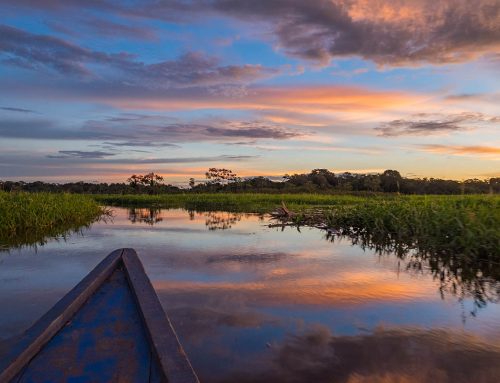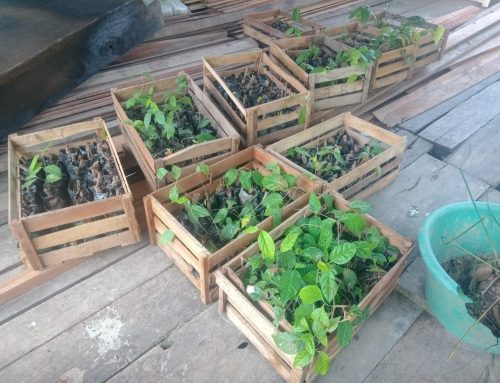My journey into the Peruvian jungle began in 2007 when I traveled to Iquitos, Peru. I was interested in personal healing after years of struggle with chronic pain due to a traumatic injury. At that time, I had no knowledge of the Shipibo people or Amazonia, however, I landed at a center owned by a Shipibo Onanya. Like many, my experience was life changing and I returned to the same center in 2009 for an extended period of time.
One morning, while at the center, I awoke to a commotion. I could tell the Peruvians were very upset and began inquiring as to what was happening. They told me that many Indigenous protestors had been killed and injured by the Peruvian military. This was June 5, 2009, the day of the Bagua Massacre when the Peruvian military used lethal weapons on thousands of unarmed Indigenous people. They had been protesting government decrees allowing international extractive companies unprecedented access to the Amazon jungle. These decrees were part of a free trade agreement between Peru and the United States.
More information about the Bagua Massacre.*
In that moment, I was confronted with the social and ecological tragedy unfolding in the jungle beyond the bucolic life of the retreat center. I knew I could not be another Westerner gaining the benefits of indigenous knowledge and healing with out reciprocating in some way. The next day the Shipibo Onanya informed me that the Shipibo-Konibo were planning their second Congreso to address the challenges of the Shipibo-Konibo people and to elect their first tribal council. In my offering to help, he asked me to raise $5,000 for the Congreso. Through amazing synchronicities I was able to raise the money. Consequently, I became an invited guest to the Congreso that would take place in Pucallpa that October.
My return to Peru for the Congreso became an initiation into the Shipibo-Konibo culture. With a beautiful welcoming ceremony I was introduced to the mothers of Maroti Shobo, a collective of traditional artesans with a market in Yarinacocha. I listened to their stories for many hours and observed the real struggles of the people. Other Shipibo-Konibo approached me telling their stories and asking for help. I was simultaneously overwhelmed with the immense need and generosity of the Shipibo-Konibo people.
At the conclusion of the Congreso a tribal council was elected. They asked me to be their international coordinator which I wholeheartedly did for two years. I made many trips to Peru acting as a Western bridge and ally by writing grants to fund the council and projects. After two years, I felt guided to work more directly on behalf of the women and children rather than in tribal politics. This calling is what birthed Shipibo Joi in 2011. For the next 6 years Shipibo Joi’s work became a journey of listening and responding with resources, volunteering, and collaborations. You can read more about these activities here.**
By 2016 I felt like I was at a personal crossroads with Shipibo Joi and asked for a samá (traditional dieta) with a Shipibo Onanya to gain more clarity. This powerful samá inspired the next steps for Shipibo Joi and birthed our cultural immersion journey, Amazon Awakening. I will forever be grateful to the late Paul Roberts of Alianza Arkana whose assistance made Amazon Awakening possible in the first years.
Amazon Awakening, in many ways, has become an antidote to colonized approaches of interacting with Indigenous culture. It is an opportunity for Western guests to listen and learn, to be in right action, and reciprocal relationship while benefiting from traditional Shipibo knowledge of plant medicine and wellbeing. Thus, Amazon Awakening honors the true give and take of relationships and cultural exchange. It helps to fund projects and grow international advocates for our Shipibo-Konibo friends and the Amazon jungle. Brian Best, our Development Director, is an integral partner in Shipibo Joi’s expanded activities as we continue to work in collaboration with other organizations in Peru that carry the same determination and integrity as Shipibo Joi.
I reflect, in awe, on this journey that is still evolving. I could not have dreamt where this path would lead since first stepping off of a plane in Iquitos in 2007. The heart of my involvement has been about reciprocity, but what I have personally received is immeasurable. I am so grateful for remarkable friendships and for the many people who have contributed, coordinated, assisted and participated along the way. It is beautiful to witness seeds that have been planted over the years take root. We invite you to join us on this journey.
*https://en.wikipedia.org/wiki/2009_Peruvian_political_crisis
**Readers can review our History of Activities under About.



